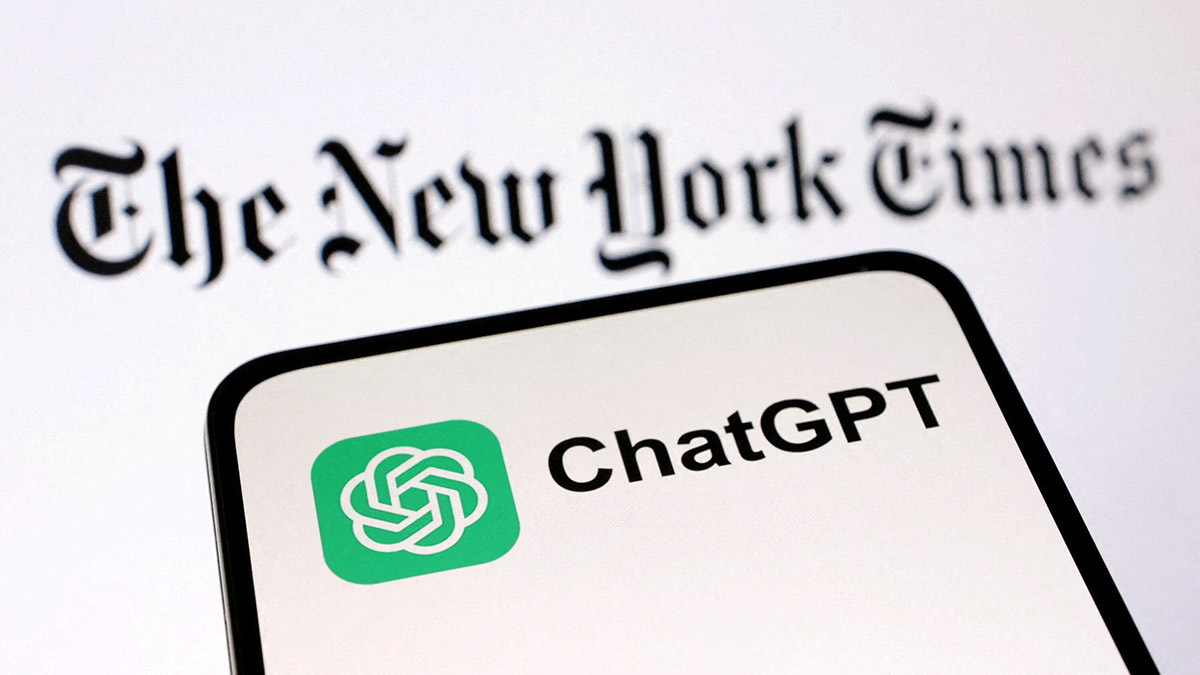- MediaMorph
- Posts
- MediaMorph Edition 57 - by HANA News
MediaMorph Edition 57 - by HANA News
Why we should lean into our fallibility
MediaMorph Edition 57 - by HANA News
Why we should lean into our fallibility
Was this newsletter forwarded to you? Sign up here
The written-by-a-human bit
Hello from Melbourne, Australia, where I look forward to speaking to the Digital News Academy for Editors about AI for journalism, productivity, and purpose.

My main message is that the debate about using AI in the newsroom is now in the past, and it is time to get on the bus. This means leading by example, learning by doing and managing change. The transition has many pitfalls, especially if couched purely as an efficiency driver and reduction in headcount. The inevitable pushback from the diehard sceptics needs to be handled carefully and sensitively. This means crystal-clear messaging about how and when AI can be used, giving permission to enthusiasts while coaching laggards.
The AI tools available today are frighteningly good - for research, brainstorming, CMS, summarisation, data analysis, computational journalism, forecasting - the list goes on and on. This is not cheating; this is a profound shift in how we gather and distribute information.
So, where does that leave the humble human reporter? What are we better at? In short, we have souls, opinions, hinterlands and connections. Humans have concerns, anxieties and are, by definition, fallible.
For a long time, AI has been better than us at chess, but no one will pay to watch machines play each other at chess.
It’s the same with journalism. Let the machines help find and craft the stories, but don’t let the soulless machines deliver the final product. We want our messy, unpredictable, scrappy world reported on by competing, fallible, annoying, excitable humans.
Mark Riley, CEO, Mathison AI
Hi
AI will be a substantial competitive advantage for those who master it. But most are still struggling with adoption because rolling out a chatbot or copilot isn’t enough to get people using it.
At Mathison AI, we are helping CEOs like you rapidly discover and prototype high-impact AI use cases tailored to your business.
We’re currently working with global and local enterprises to identify areas where AI can drive real operational value — from automation and cost savings to entirely new product ideas.
If you’re exploring AI and want a clear, low-risk way to get started, I’d love to share how we approach it through fast education sessions and hands-on prototyping.
AI and Journalism
Opinion | Should journalism embrace AI? Or run from it? Poynter - In the latest episode of 'The Poynter Report Podcast,' host Alex Mahadevan explores how artificial intelligence is revolutionising journalism by streamlining workflows and enhancing data analysis, while asserting that it cannot replace the critical human elements essential to the field. He encourages reporters to leverage AI for efficiency, allowing them to focus on complex storytelling and uphold the core values of journalism amidst technological advancements. |

Rethinking AI in journalism with global cooperation Digital Watch Observatory - June 23, 2025 At the Internet Governance Forum 2025 in Norway, a session by R&W Media introduced the Haarlem Declaration and an ‘ethical AI checklist’ to promote responsible AI practices in journalism, emphasising human rights and environmental responsibility. Speakers, including Dutch Ambassador Ernst Noorman, highlighted the need for AI policies rooted in international law while grassroots organisations from the Global South shared their experiences with algorithmic bias and language exclusion. |
News Corp bets big on AI tools but journalists voice concerns The Guardian - June 20, 2025 Journalists at Rupert Murdoch's Australian publications are raising concerns over the introduction of AI tools like "NewsGPT" and "Story Cutter," which may threaten jobs and accountability in journalism. Meanwhile, Seven West Media is set to undergo voluntary redundancies, and a controversial podcast featuring Donald Trump has sparked discussions about political rhetoric in Australia. |
Here's how WCPO 9 is using artificial intelligence in our journalism WCPO 9 Cincinnati - June 19, 2025 WCPO 9 is dedicated to responsible AI use in journalism, leveraging technology for tasks like copy editing and social media post generation while ensuring that storytelling remains a human-driven process. As they adapt their practices, the station promises to keep audiences informed about any changes to their approach. |
How Artificial Intelligence Is Changing Journalism: From Headlines to Deep Analysis Modern Diplomacy - June 20, 2025 AI is transforming journalism by enhancing speed and data analysis, but the human touch remains vital for storytelling and emotional depth. As AI tools assist in content generation, journalists evolve into strategists who ensure authenticity and integrity in reporting while leveraging technology to better connect with audiences. |
The Indy Innovates With AI Christian Broughton, CEO of The Independent, urges journalists to proactively engage with AI technology to shape its role in their field, warning that a passive stance could allow tech companies to dictate journalism practices. By collaborating with AI developers, journalists can enhance reporting and maintain ethical standards while safeguarding the integrity of news. |
‘Automating the Boring Stuff’ with Pollfinder.ai Cjr - As election season ramps up, newsrooms are increasingly turning to polls for insights into voter preferences and candidate standings, highlighting the critical need for understanding polling methodologies and potential biases. This reliance on polling emphasizes the importance of responsible journalism in accurately interpreting and reporting these findings to inform the public. |
NYT CEO Meredith Kopit Levien Talks Journalism and AI Adweek - June 18, 2025 At Cannes Lions, New York Times CEO Meredith Kopit Levien defended the value of serious journalism and discussed the company's strategic approach to AI and content licensing, emphasizing its commitment to protecting intellectual property. She reaffirmed the importance of adversarial reporting in holding power accountable, while advocating for a thoughtful, long-term digital innovation strategy. |
Minnesota’s Sahan Journal dives into AI with strategic goals and open eyes A nonprofit newsroom is exploring innovative uses of ChatGPT through grant funding to enhance productivity and diversify revenue streams while maintaining journalistic integrity. By experimenting with AI for content generation, audience engagement, and data analysis, the organisation aims to set a precedent for responsible integration of technology in the media landscape. |
Who’s suing AI and who’s signing: BBC threatens Perplexity, raft of Prorata partnerships Press Gazette - June 20, 2025 Major news publishers are taking legal action against AI companies like OpenAI for unauthorised use of their content, while others opt for lucrative licensing agreements to ensure fair compensation. As the landscape evolves, partnerships and lawsuits continue to shape the relationship between media organisations and generative AI firms. |
How to reduce the environmental impact of using AI Online Journalism Blog - June 19, 2025 The environmental impact of generative AI tools like ChatGPT is nuanced, with energy consumption varying widely based on model size and efficiency; strategies to mitigate this include opting for smaller models, disabling unnecessary AI features, and considering traditional methods over AI for certain tasks. Experts emphasize a systemic approach to addressing the broader environmental issues linked to data centers and fossil fuel reliance rather than focusing solely on individual technology use. |
/
AI and the media: partners rather than rivals Atalayar - June 21, 2025 The media industry grapples with a crisis fueled by social media, yet a 2025 report shows 40% of people still trust established outlets for verifying information. As AI tools emerge as potential allies in journalism, concerns over accuracy and ethical use persist, prompting calls for regulation to ensure transparency and reliability in news production. |
AI and Academic Publishing
How Language Bias Persists in Scientific Publishing Despite AI Tools Stanford - A study by Stanford researchers Haley Lepp and Daniel Scott Smith reveals that biases against non-native English speakers persist in scientific publishing, even with the use of large language models like ChatGPT, as reviewers often stereotype authors based on their writing style rather than the quality of their research. The authors argue for a fundamental shift in evaluating scientific work to address systemic inequities rooted in colonialism and the preference for English-only content. |
AI-mediated translation presents two possible futures for academic publishing in a multilingual world Plos - The academic publishing landscape faces challenges due to the dominance of English, which hinders the contributions and access to research of non-native speakers. While AI offers promising solutions for translation and accessibility, a shift towards a multilingual publishing model could empower diverse voices in science, fostering inclusivity and enhancing public engagement. |
My paper was probably reviewed by AI – and that’s a serious problem Times Higher Education (THE) - June 24, 2025 A recent experience with a disheartening peer review process revealed potential misuse of AI in scientific evaluations, as vague and irrelevant feedback undermined the integrity of the review. Despite raising concerns about the superficial nature of the comments, the author was advised to resubmit their manuscript, highlighting the urgent need for better detection of AI-generated reviews in academic publishing. |
/
WLY Q1 Deep Dive: Academic Revenue Decline Offset by Digital Growth and AI Partnerships Yahoo Finance - June 17, 2025 Wiley's Q3 revenue reached $442.6 million, exceeding expectations and driven by strong growth in Open Access publishing, while EPS of $1.25 beat estimates by 16.8%. The company is focusing on cost efficiency and digital investments to enhance margins amidst ongoing macroeconomic challenges. |
Weekend reads: Nobel Prize winners and retractions; Nature to publish peer reviews automatically; ‘AI or Die’? Retraction Watch - June 21, 2025 This week at Retraction Watch, we reported on significant developments in academic publishing, including PubMed's correction of an Elsevier error, Springer Nature's retraction of multiple articles over authorship issues, and the revelation of ethical knowledge gaps among Chinese researchers. Additionally, concerns about research integrity are mounting amidst funding cuts and calls for AI standards in scholarly publishing. |
Xerox alum joins publisher Wiley following AI licensing revenue jump CFO Dive - June 23, 2025 Wiley has appointed Craig Albright as CFO to drive its AI initiatives, succeeding interim finance chief Chris Caridi. With a reported surge in AI licensing revenues and strategic partnerships, Wiley aims to leverage AI tools for innovation across multiple sectors. |
Cactus Communications, NIT Calicut partner on AI for academia Research Information - June 19, 2025 Cactus Communications has partnered with NIT Calicut to enhance research capabilities through the Editage Plus toolkit, providing AI-powered tools for academic writing, literature searches, and scientific illustrations. This collaboration aims to support students and researchers in improving writing quality and streamlining the publishing process. |
Scite Expands Extensive Publisher Partnership Network With American Society For Microbiology Indexing Agreement Wjbf - Scite's new Direct Indexing Agreement, which connects with over 30 publishers, significantly enhances its access to scholarly content and positions the platform as a leader in citation analysis. This initiative reinforces Scite's commitment to innovation and improved research outcomes, offering users a richer and more inclusive database. |
This newsletter was partly curated and summarised by AI agents, who can make mistakes. Check all important information. For any issues or inaccuracies, please notify us here
View our AI Ethics Policy










